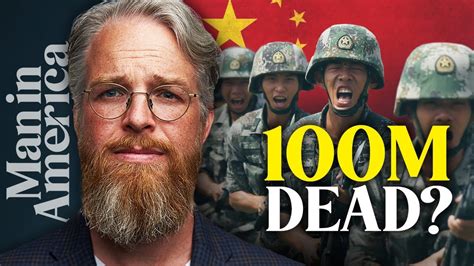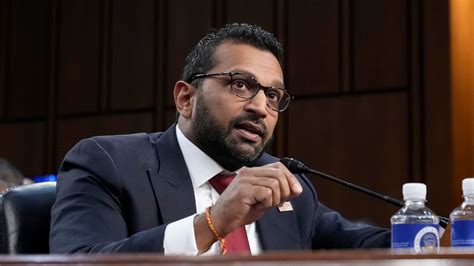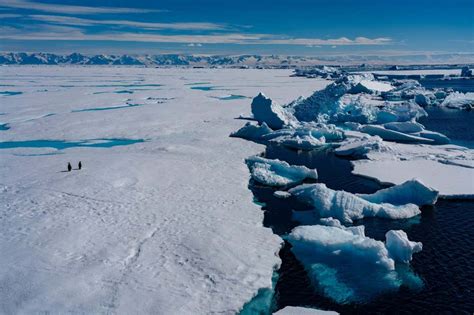
Several people were injured, and one person was arrested after a vehicle was set on fire near the site of a pro-Palestinian protest outside an immigration detention center in Aurora, Colorado, on Sunday.
Aurora, Colorado – Chaos erupted near the GEO Group immigration detention center in Aurora on Sunday as a pro-Palestinian demonstration turned violent, leaving six people injured and leading to one arrest. The incident occurred during a rally advocating for the release of hostages held by Hamas in Gaza, with tensions escalating rapidly as a vehicle was set ablaze.
The Aurora Police Department confirmed that officers responded to reports of a vehicle fire and multiple injuries near the detention facility at approximately 4:20 p.m. local time. “Upon arrival, officers encountered a chaotic scene with protesters and counter-protesters clashing,” stated police spokesperson Agent Matthew Longshore. “Several individuals sustained injuries, and a vehicle was found engulfed in flames.”
According to authorities, the injuries ranged from minor burns to more severe trauma resulting from physical altercations. Emergency medical services transported the injured individuals to local hospitals for treatment. As of Sunday night, their conditions were reported as stable.
The exact sequence of events leading to the violence remains under investigation, but preliminary reports indicate that the initial demonstration, organized by a local Jewish organization to raise awareness about the hostages held in Gaza, was met by a counter-protest from pro-Palestinian activists. Witnesses described heated exchanges and escalating verbal confrontations before the situation turned physical.
“We were there to peacefully advocate for the release of our loved ones and to show solidarity with the families who are suffering,” said David Stein, a representative from the Jewish Community Relations Council, one of the organizing groups. “The violence that occurred was completely unacceptable and undermines the very purpose of our gathering.”
Counter-protesters, however, claim that their demonstration was intended to highlight the plight of Palestinians and to protest against the GEO Group’s involvement in immigration detention. “We wanted to make our voices heard and to stand in solidarity with the Palestinian people,” said Sarah Mahmoud, a spokesperson for a local pro-Palestinian activist group. “We condemn all forms of violence, but we also believe it’s important to address the root causes of the conflict.”
The vehicle fire is a central point of the investigation, with conflicting accounts emerging from witnesses. Some claim that the vehicle belonged to a counter-protester and was intentionally set on fire by pro-Palestinian activists, while others allege that it was an accidental fire resulting from the chaotic environment. The Aurora Fire Rescue Department is conducting a separate investigation to determine the cause and origin of the fire.
“We are treating the fire as a potential arson case until we have definitive evidence to the contrary,” said Fire Chief Fernando Gray. “Our investigators are working diligently to gather evidence and to determine the circumstances surrounding the incident.”
The individual arrested at the scene has been identified as a 24-year-old male, but his name has not been released pending formal charges. He is currently being held at the Arapahoe County Detention Facility on suspicion of arson and assault. Agent Longshore stated that additional arrests may be made as the investigation progresses.
The GEO Group detention center has been the site of numerous protests in recent years, with activists raising concerns about the conditions inside the facility and the company’s involvement in immigration enforcement. The facility houses undocumented immigrants awaiting deportation proceedings and has faced criticism for alleged human rights violations.
“We have been protesting outside this facility for years, calling for an end to the inhumane treatment of immigrants and for the closure of the detention center,” said Maria Rodriguez, an activist with a local immigrant rights organization. “The events that occurred on Sunday are a reflection of the deep divisions and tensions that exist in our society.”
Local political leaders have condemned the violence and have called for a thorough investigation. Colorado Governor Jared Polis issued a statement expressing his concern and offering support to the Aurora community. “Violence has no place in our state, and we must work together to ensure that everyone has the right to express their views peacefully and safely,” Polis said.
Aurora Mayor Mike Coffman echoed Polis’s sentiments, emphasizing the importance of maintaining public safety and upholding the law. “We are committed to ensuring that Aurora remains a welcoming and inclusive community for all,” Coffman said. “We will not tolerate violence or intimidation of any kind.”
The incident has sparked a broader debate about the role of protests and counter-protests in a democratic society, with some arguing that the right to assembly must be balanced with the need to maintain public order and safety. Others contend that protests are a vital form of expression and that restrictions on free speech should be carefully scrutinized.
“The right to protest is a fundamental right, but it is not an absolute right,” said Professor Emily Carter, a constitutional law expert at the University of Colorado. “The government has the authority to regulate protests to ensure public safety and to prevent violence, but any such regulations must be narrowly tailored and must not unduly restrict freedom of expression.”
The Aurora Police Department is appealing to the public for any information related to the incident, including photographs, videos, and eyewitness accounts. Anyone with information is urged to contact the department’s tip line at 303-739-7000.
The investigation into the incident is ongoing, and authorities are working to determine the full extent of the damage and the motivations of those involved. The events in Aurora serve as a stark reminder of the deep divisions and tensions that exist in contemporary society and the challenges of managing conflicting perspectives in a peaceful and constructive manner. The incident underscores the importance of respectful dialogue, mutual understanding, and a commitment to non-violence in addressing complex social and political issues. It also highlights the need for law enforcement to be prepared to manage protests and counter-protests effectively, ensuring the safety of all participants and the protection of public order. As the investigation progresses, the focus will remain on holding those responsible for the violence accountable and on preventing similar incidents from occurring in the future. The community of Aurora is grappling with the aftermath of the incident, seeking to heal divisions and to reaffirm its commitment to inclusivity and respect for diverse viewpoints. The events of Sunday serve as a call to action, urging individuals and organizations to work together to promote understanding, tolerance, and peaceful resolution of conflicts.
The incident near the GEO Group detention center is not an isolated event but rather part of a broader pattern of protests and counter-protests related to the Israeli-Palestinian conflict and immigration policy. These issues have become increasingly divisive in recent years, with strong emotions and deeply held beliefs on both sides. The challenge for policymakers and community leaders is to create an environment in which these issues can be discussed and debated in a civil and respectful manner, without resorting to violence or intimidation. This requires a commitment to open dialogue, a willingness to listen to opposing viewpoints, and a recognition of the common humanity that binds us together. It also requires a firm stance against hate speech and incitement to violence, and a willingness to hold those who engage in such behavior accountable.
The events in Aurora also raise important questions about the role of social media in amplifying tensions and contributing to polarization. Social media platforms have become a powerful tool for organizing protests and disseminating information, but they can also be used to spread misinformation, incite hatred, and coordinate acts of violence. The challenge for social media companies is to strike a balance between protecting freedom of expression and preventing the spread of harmful content. This requires a combination of technological solutions, content moderation policies, and user education. It also requires a willingness to work with law enforcement and community organizations to identify and address potential threats.
The incident in Aurora underscores the importance of community policing and building trust between law enforcement and the communities they serve. When law enforcement agencies have strong relationships with local communities, they are better able to anticipate and respond to potential conflicts. Community policing involves assigning officers to specific neighborhoods, encouraging them to get to know the residents, and working with them to address local concerns. It also involves providing officers with training in conflict resolution, de-escalation techniques, and cultural sensitivity.
The long-term solution to the challenges highlighted by the events in Aurora lies in addressing the root causes of conflict and division. This requires a multifaceted approach that includes promoting education, fostering economic opportunity, and addressing systemic inequalities. It also requires a commitment to building bridges between different communities and fostering a sense of shared identity. The events in Aurora serve as a reminder that the work of building a more just and equitable society is far from over. It is a continuous process that requires the active participation of all members of the community. By working together, we can create a society in which all people are treated with dignity and respect, and in which conflicts are resolved peacefully and constructively.
The incident in Aurora is a complex and multifaceted event that raises important questions about freedom of expression, public safety, and the role of protests and counter-protests in a democratic society. It is essential to conduct a thorough and impartial investigation to determine the facts and to hold those responsible for the violence accountable. It is also essential to learn from this experience and to take steps to prevent similar incidents from occurring in the future. This requires a commitment to dialogue, understanding, and non-violence, as well as a willingness to address the root causes of conflict and division. The community of Aurora is resilient and committed to building a more inclusive and welcoming society. By working together, we can overcome the challenges we face and create a future in which all people can live in peace and harmony.
The ongoing investigation will need to consider the role of outside agitators, if any, in escalating the tensions. Often, protests draw individuals from outside the immediate community who may have different agendas or a propensity for violence. Identifying and understanding the motivations of these individuals is crucial for preventing similar incidents in the future. Law enforcement agencies may need to enhance their intelligence gathering capabilities to identify potential threats and to coordinate with other agencies to share information.
Another important aspect of the investigation will be to assess the effectiveness of the security measures that were in place at the time of the protest. Were there adequate barriers to separate protesters and counter-protesters? Were there enough law enforcement officers present to maintain order? Were the officers properly trained in crowd control techniques? Answering these questions will help to identify areas for improvement and to ensure that future protests are conducted safely and peacefully.
The incident in Aurora has had a significant impact on the local community, and it is important to provide support and resources to those who have been affected. This includes providing counseling services to victims of violence, offering assistance to businesses that have been damaged, and organizing community events to promote healing and reconciliation. It also includes engaging in open and honest dialogue to address the concerns and grievances of all members of the community.
The incident also underscores the importance of media literacy and critical thinking skills. In an era of widespread misinformation and disinformation, it is essential for individuals to be able to evaluate the credibility of sources and to distinguish between fact and fiction. This requires a concerted effort by educators, journalists, and community leaders to promote media literacy and to encourage critical thinking.
The events in Aurora are a reminder that the struggle for justice and equality is an ongoing process. There will be setbacks and challenges along the way, but it is important to remain committed to the principles of democracy, human rights, and the rule of law. By working together, we can create a society in which all people are treated with dignity and respect, and in which conflicts are resolved peacefully and constructively.
The role of the GEO Group detention center in the context of these protests cannot be overlooked. The facility itself is a symbol of contentious immigration policies, making it a frequent focal point for demonstrations. Understanding the detainees’ experiences and the ethical considerations surrounding private immigration detention centers is crucial for a comprehensive analysis of the events in Aurora. This includes examining the conditions within the facility, the legal rights of detainees, and the impact of detention on individuals and families.
The long-term consequences of the Aurora incident may include increased security measures at future protests, stricter regulations on demonstrations near sensitive facilities, and a renewed focus on community relations. It is also possible that the incident will lead to increased political polarization, as different groups seek to exploit the events to advance their own agendas. The challenge for leaders and community members is to resist these divisive forces and to work together to find common ground.
The investigation should also explore any potential connections between the protesters and extremist groups. While most protesters are peaceful and law-abiding, there is always a risk that extremist elements may seek to exploit protests to promote their own violent agendas. Identifying and addressing these threats is essential for protecting public safety and preventing future acts of violence. This requires close cooperation between law enforcement agencies, intelligence agencies, and community organizations.
The incident in Aurora is a complex and multifaceted event that requires a comprehensive and nuanced understanding. By examining all of the relevant factors and perspectives, we can learn valuable lessons about how to prevent future acts of violence and to build a more just and equitable society.
Frequently Asked Questions (FAQ)
-
What exactly happened in Aurora, Colorado?
- Answer: On Sunday, a pro-Palestinian protest and a counter-protest, supporting the release of hostages held by Hamas in Gaza, clashed near the GEO Group immigration detention center in Aurora. The event escalated, resulting in a vehicle being set on fire and six people injured. One person was arrested on suspicion of arson and assault.
-
How many people were injured, and what is their condition?
- Answer: Six people were injured during the incident. According to the Aurora Police Department, the injuries ranged from minor burns to more severe trauma resulting from physical altercations. As of Sunday night, their conditions were reported as stable.
-
What is the GEO Group detention center, and why was the protest held near it?
- Answer: The GEO Group detention center is a facility that houses undocumented immigrants awaiting deportation proceedings. It has been the site of numerous protests in recent years, with activists raising concerns about the conditions inside the facility and the company’s involvement in immigration enforcement. The specific reason for its location being targeted on this occasion appears coincidental, as the core protest issue revolved around hostages in Gaza.
-
Who was arrested, and what charges are they facing?
- Answer: A 24-year-old male was arrested at the scene. His name has not been released pending formal charges. He is currently being held at the Arapahoe County Detention Facility on suspicion of arson and assault. Authorities have indicated that additional arrests may be made as the investigation progresses.
-
What are the authorities doing to investigate the incident?
- Answer: The Aurora Police Department is conducting a full investigation into the incident, including interviewing witnesses, reviewing video footage, and gathering evidence. The Aurora Fire Rescue Department is conducting a separate investigation to determine the cause and origin of the vehicle fire, treating it as a potential arson case. The police are also appealing to the public for any information related to the incident, including photographs, videos, and eyewitness accounts.
-
What sparked the violence between the protesters and counter-protesters?
- Answer: While the exact sequence of events is under investigation, preliminary reports indicate that heated exchanges and escalating verbal confrontations between the pro-Palestinian and pro-Israeli protesters preceded the physical altercations and the vehicle fire. Differing viewpoints on the Israeli-Palestinian conflict and the hostages held in Gaza likely fueled the tension.
-
What role did the GEO Group detention center play in the conflict?
- Answer: The GEO Group detention center, while not directly related to the core issue of the hostage rally, served as a backdrop for the protest. It is a known site for demonstrations related to immigration policy, and the presence of the facility may have attracted additional protesters and counter-protesters with differing agendas, contributing to the overall tension.
-
What is the local community’s response to the violence?
- Answer: Local political leaders, including Colorado Governor Jared Polis and Aurora Mayor Mike Coffman, have condemned the violence and called for a thorough investigation. The community is grappling with the aftermath of the incident, seeking to heal divisions and reaffirm its commitment to inclusivity and respect for diverse viewpoints. There are ongoing efforts to promote understanding, tolerance, and peaceful resolution of conflicts.
-
Are there any indications that outside groups or extremist elements were involved?
- Answer: The investigation will explore any potential connections between the protesters and extremist groups. Law enforcement agencies may need to enhance their intelligence gathering capabilities to identify potential threats and to coordinate with other agencies to share information. While most protesters are peaceful, there is always a risk that extremist elements may seek to exploit protests to promote their own violent agendas.
-
What steps can be taken to prevent similar incidents from happening in the future?
- Answer: Preventing future incidents requires a multi-faceted approach, including promoting education, fostering economic opportunity, and addressing systemic inequalities. It also includes a commitment to building bridges between different communities and fostering a sense of shared identity. Community policing, media literacy, and critical thinking skills are also essential. Law enforcement agencies need to be prepared to manage protests and counter-protests effectively, ensuring the safety of all participants and the protection of public order. Stricter regulations on demonstrations near sensitive facilities may also be considered.
-
What is the current status of the person who was arrested?
- Answer: The 24-year-old male who was arrested is currently being held at the Arapahoe County Detention Facility. He is being held on suspicion of arson and assault. His name has not been released pending formal charges. He is awaiting arraignment and the setting of bail. The investigation is ongoing to determine the full extent of his involvement.
-
What evidence is the police department gathering to support their investigation?
- Answer: The Aurora Police Department is gathering various forms of evidence to support their investigation. This includes interviewing witnesses who were present at the scene, reviewing video footage captured by surveillance cameras and bystanders, and collecting physical evidence from the scene, such as debris from the vehicle fire. They are also working with the Aurora Fire Rescue Department to analyze the cause and origin of the fire.
-
What is the GEO Group’s response to the protest and the violence?
- Answer: There is no explicit mention of the GEO Group providing any response to the incident. Typically, a company in such a position might issue a statement emphasizing its commitment to safety and security, condemning violence, and cooperating with law enforcement.
-
How are local community organizations helping those affected by the incident?
- Answer: Local community organizations are providing support and resources to those affected by the incident. This includes offering counseling services to victims of violence, providing assistance to businesses that have been damaged, and organizing community events to promote healing and reconciliation. They are also engaging in open and honest dialogue to address the concerns and grievances of all members of the community.
-
What are the potential legal ramifications for those involved in the violence?
- Answer: The potential legal ramifications for those involved in the violence include charges such as arson, assault, battery, and potentially inciting a riot, depending on their level of involvement and the evidence presented. The specific charges and penalties will be determined by the district attorney’s office based on the findings of the police investigation. Convictions could result in fines, imprisonment, and a criminal record.
-
How might this incident impact future protests and demonstrations in Aurora?
- Answer: This incident may lead to increased security measures at future protests and demonstrations in Aurora. Law enforcement may require permits for protests, impose stricter regulations on the location and duration of demonstrations, and deploy more officers to maintain order. It could also lead to increased scrutiny of protest organizers and participants, as well as a greater emphasis on de-escalation techniques and conflict resolution.
-
What efforts are being made to address the underlying tensions between pro-Palestinian and pro-Israeli groups in the community?
- Answer: Efforts to address the underlying tensions between pro-Palestinian and pro-Israeli groups in the community may involve interfaith dialogues, community forums, and educational programs designed to promote understanding and empathy. These initiatives aim to create space for respectful conversation, bridge divides, and address misconceptions. However, the success of these efforts depends on the willingness of individuals and groups to engage in open dialogue and to challenge their own biases.
-
What role can social media companies play in preventing the spread of misinformation and incitement to violence related to such events?
- Answer: Social media companies can play a crucial role in preventing the spread of misinformation and incitement to violence by implementing content moderation policies that prohibit hate speech, incitement to violence, and the dissemination of false or misleading information. They can also invest in technology to detect and remove harmful content quickly, and partner with fact-checking organizations to verify the accuracy of information. Furthermore, they can provide users with tools to report abuse and block harmful content, and promote media literacy education to help users critically evaluate the information they encounter online.
-
How does the incident relate to broader debates about free speech, public safety, and the right to protest in the United States?
- Answer: The incident highlights the ongoing tension between the constitutional right to free speech and assembly and the need to maintain public safety and order. While individuals have the right to express their views peacefully, that right is not absolute and can be restricted when it poses a clear and present danger to public safety. The incident raises questions about the appropriate balance between protecting free speech and preventing violence, and the role of law enforcement in managing protests and counter-protests to ensure the safety of all participants and the public.
-
What steps are being taken to ensure accountability for any law enforcement failures in managing the protest?
- Answer: Steps to ensure accountability for any law enforcement failures in managing the protest may include internal reviews of police procedures, investigations by independent oversight bodies, and disciplinary action against officers who violated department policies or engaged in misconduct. The findings of these reviews and investigations would be made public, and recommendations would be implemented to improve law enforcement’s response to future protests. It could also lead to changes in training, policies, and equipment to better equip officers to manage protests peacefully and effectively.









